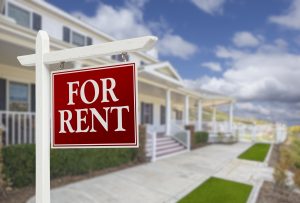Owning A Rental Property
What to Know When Owning a Rental Property
Many people dream of living in Hawaii, so a rental property may prove a great investment. However, there’s always the possibility owning a rental property can become a giant headache. Avoid the latter by assessing whether you are cut out to be a landlord and by following property rental best practices.
Rental Property Considerations
When buying a rental property, keep in mind that mortgage insurance doesn’t apply to investment properties. That means you must plan on making at least a 20 percent down payment.
How will you handle repairs? If you’re handy and can do all but the most major repairs yourself, that’s a plus, but many landlords don’t live near their rental properties. You may want to hire a property management firm to take care of necessary repairs and other business. The fee you pay the property management firm does cut into your income – the average fee is 10 percent of the rent – but it’s generally your best solution if you aren’t handy or are primarily an absentee landlord.
If the property is a fixer-upper, you will need either serious handyman skills or deep pockets. If you’re just starting out as a landlord, it’s wise to go with a property requiring only minor repairs and get some experience under your belt. You’ll then have a more realistic idea about taking on a bigger project down the road.
Tenant Screening
Careful tenant screening makes the difference between a successful and disastrous rental experience, so it’s absolutely critical. Perform a thorough background check on every applicant. One plus: In Hawaii, landlords can charge potential tenants a non-refundable application fee, with no limit on the amount.
One way to separate the tenant wheat from the chaff while protecting yourself is requiring tenants to carry rental insurance. Such insurance isn’t expensive, and can possibly keep you out of court if something happens to the tenant’s property. Tenants might assume the landlord’s insurance covers their personal items, but that’s not the case. If there’s an issue and the tenant suffers a loss, they might try to sue you if they don’t have rental insurance. Mandatory rental issues protects both parties, and if a tenant can’t afford another $20 a month for premiums, making rent payments on time may also become a problem.
Do Your Homework
Hawaii must abide by the federal Fair Housing Act, but there are also state laws relating to landlord/tenant issues. Familiarize yourself with these laws before becoming a landlord.
Before buying a property, figure out how much you can expect in annual income, your approximate annual expenses and possible risks. Such risks include vacancies, above-average repair costs, non-payment of rent and legal fees if you must proceed with an eviction.
Speak with an accountant familiar with rental properties and have them go over the numbers with you. It’s money well-spent.
Contact Us
If you’re looking to buy or sell a home or find a rental property, you need a knowledgeable, experienced realtor. Contact Island Realty Group LLC at 808-689-7407 or IslandRealtyGroup@irghi.com.


